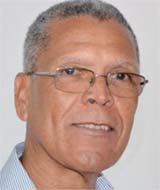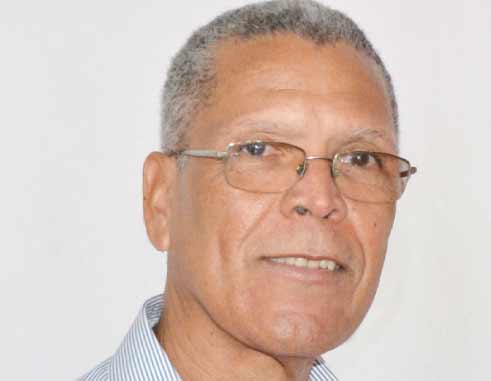
SOME reflection on last week’s discussion, “Heaven Help Us”, is, unfortunately, necessary. This discussion displaces that intended for this week entitled “Our Future Looks Bright”, and is a relatively minor distraction. “Our Future Looks Bright” will now appear next week.
As we reflect, we might also bear in mind that while our discussions revolve around matters of the economy, not only do we not offer advice on any aspect of the subject, but our call is constantly for the professionals among us to provide their thoughts on the issues that arise. The principle on which this rests goes further than matters related to training and competency, and in an article now scheduled for publication in mid-November, we address this more completely.
Noone living in St. Lucia however can consider themselves insulated from the impacts of the economic decisions taken by the people whom we elect to lead us, or should think of themselves as requiring permission to discuss either those decisions or their impacts. We come face to face with the results of those decisions on a daily basis as we face them every time we go to the supermarket and complain about the prices, or when we complain about the utility services, or complain about the service available from our hospitals.
It’s even worse when we have to face the reality of an economy which permits young children to go to school poor and hungry, with little aptitude for learning, only to emerge from the experience as teenagers, still poor, still hungry, and still illiterate, but now also jobless and angry.
It’s our economy at work when we complain about the police force and how they seem unable to get crime under control. And so for those of us who have to live with the constant muggings, the rapes, the murders, the break-ins and the thefts, the economy matters. It is not a subject for pseudo-intellectual discussion which we can indulge in from the comfort of the proverbial armchair. It is a matter of physical survival, and can quite literally mean life or death for many of us.
But the discussions that we are having have nothing to do with the economic theory that underpins the decisions taken by the government. Our discussions are concerned with matters of governance, and are therefore more concerned with the manner in which those economic decisions are taken than with the actual decisions themselves.
So, our discussion of the budget has nothing to do with economic analysis or economic decision-making. If anything, it has to do with the accounting profession, and as before, here also we request that professionals in the field offer their advice publicly on the issues that have arisen.
For those of us however who may be of the view that any discussion of the Estimates of Expenditure and the Budget Speech should be left to persons qualified in economics or accounting or some related discipline, they might also want to consider just whom those Estimates are being presented to. Those disciplines apparently being suggested as necessary for proper debate are rarely well represented in Parliament, and if only for this reason, it is essential that Parliamentarians be afforded the luxury of absolute reliance on the data contained in the Estimates.
For those of us who live here, if the previous years’ Budget Deficits have been understated, as they appear to have been, then, sometime soon, we are going to feel the squeeze of the adjustments that will be necessary to bring our expenditure in line with our revenue. And if anyone thinks that that is something to dismiss with an argument, whether eloquent or disjointed, just look at what the Jamaican people have had to suffer through – for the last 40 years. Or examine Greece’s recent experience.
For those of us who live “away” and make up the diaspora, it is going to affect you as well. Maybe not directly, but if you come home from time to time, you will feel the effects. New York is now safer than Castries and it is only going to get worse. Statistically, your odds of living with your limbs and property intact are much better living anywhere in the first world compared with living in St. Lucia, and that means that you never can come “home” again. You might return to St. Lucia, but it will not be the “home” that you left.
The other thing for those of us living in the diaspora to consider is that you also have family who live here, and whom you send money to from time to time. While this may only be significant to you from an emotional standpoint, on a national level, remittances in 2015 accounted for 16.9% of Jamaica’s GDP, 4.2% of St. Vincent’s GDP, but 2.1% of St. Lucia’s GDP according to World Bank data. That data speaks for itself, but with things getting worse in St. Lucia, you are going to have to dig much deeper into your pockets to help out your family here even if that means you now have to take a second or third job so that you can make ends meet over there. A worsening economy affects all of us.
And so it should have been easy to excuse that poor, lost soul who offered a suggestion in a comment to the digital edition of that “Heaven Help Us” article, advising that I should make the effort and find myself a copy of the CDB report on our economy as doing so would provide confirmation of the contents of the Estimates of Expenditure which I had subjected to criticism. I was inclined to forgive his comments until realizing that I was not at fault, as I had made just that effort and had searched online, but had not been able to find a copy of that report. (CDB, in any event, relies on the data provided by Government).
Even then, charity still propelled me to forgive that unfortunate but anonymous soul, until lightning struck and I recognized that this was not the first time that the CDB review of our economy was being referred to as if its contents were public knowledge, although they could not be.
You see, fortunately for us, there has been a refreshing change in the way our public affairs are being conducted, so that not only were the preliminary comments on our economy by the CDB presented to us the day after a similar presentation had been made to the Government, but a video of the entire press conference was embedded at a least one media report. Anyone listening to the audio of this video will hear Minister Raymond stating that the report was then in draft form and that he had been informed by the CDB that a final report would become available in a week or two. Those viewing as well would have seen the acknowledgement of Dr. Raymond’s comment by the CDB representative, Dr. Ram.
Yet, while this press conference was held on September 21, the edition of this newspaper of October 01 contained commentary on the CDB report implying that the commentator had knowledge of the contents of that report beyond that which had been presented at the press conference. And in the edition of St. Lucia News Online of October 02, the address by the Leader of the Labour Party to that Party’s Annual Conference of Delegates was carried. In that address, he apparently quotes the report of the CDB word for word.
Concerned with these developments, I therefore contacted the Office of the Prime Minister to enquire as to the whereabouts of this report, and so I can confirm to you that as of the morning of October 10, 2016, the final report by the CDB of its 2016 review of the economy of St. Lucia had not been presented to the Government of St. Lucia. I can also confirm that the draft copy of the report has not been made public by the Government.
How then was it possible for the Leader of the Opposition, a senior columnist, as well as a misguided commentator to all be in a position to imply that they have intimate knowledge of the contents of this non-existent report? Something is rotten in the State of Denmark, and it starts with the head.
When that CDB report becomes publicly available, we will examine its contents, and we will compare them with the conclusions of those commenting on this still non-existent document so that a fuller understanding of the process at work may be obtained by all of us.














And that my friend is investigative reporting coming from an engineer. Thanks for such fine work.